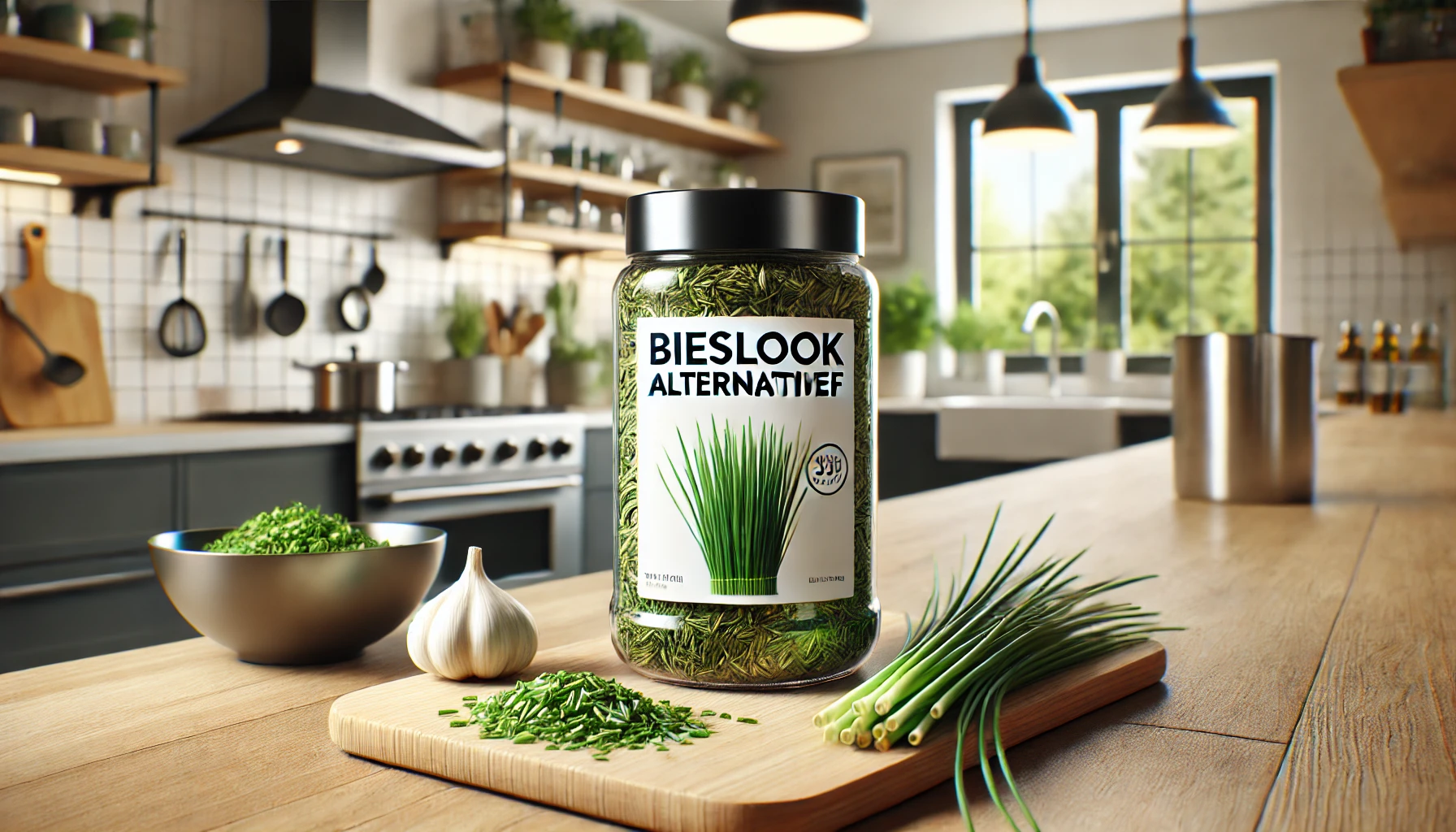Alternatives for chives
Chives are a mild and aromatic herb often used as a garnish or flavor enhancer in salads, sauces, and egg dishes. It adds a subtle onion flavor without the sharpness of raw onion. If you don't have chives at home, there are several alternatives that offer a similar taste and function.
What are chives?
Chives, a member of the onion family, is a commonly used herb in kitchens around the world. It is appreciated for its fine stems and mild flavor, which is similar to that of spring onions but subtler and less dominant. In the Netherlands, chives are often used in herb butter, as a topping for potatoes, and in omelets. It is an essential ingredient in classic dishes such as crème fraîche dips and potato salads.
Internationally, chives also play an important role in various cuisines. In French cuisine, it is one of the "fines herbes," a mix of delicate herbs used in soups, sauces, and omelets. In Asian cuisines, chives are sometimes replaced by garlic chives, which have a stronger aroma. In addition to its culinary applications, chives are also rich in vitamin C and antioxidants, making it a healthy addition to meals.
If you don't have chives, there are several herbs and vegetables that offer similar flavor profiles, depending on the dish you are making.
Alternatives for chives
- Spring onion: The green tops of spring onions offer a similar taste and texture. They are slightly stronger in flavor, so use them sparingly.
- Garlic chives: This herb has a more pronounced flavor with a hint of garlic and is ideal for Asian dishes or as a garnish.
- Parsley: Parsley has a fresh, mild flavor that works well in salads and as a garnish, although it lacks the onion flavor of chives.
- Dill: Dill offers a fresh and aromatic flavor and is a good substitute in sauces and fish dishes. It has a different flavor profile, but gives dishes a similar refinement.
- Chervil: This herb has a subtle anise flavor and is an excellent alternative in French dishes or light salads.
- Onion flakes: For a slightly more intense flavor, you can use finely chopped raw onion. Use this especially in dishes where the sharpness of raw onion is desired.
- Leek: The thin green parts of leek can be finely chopped and serve as a mild replacement in warm dishes such as soups and stews.
Chives are a versatile herb that gives dishes a subtle onion flavor. If you don't have it available, alternatives such as spring onion, parsley, or dill provide excellent replacements. By being creative with these herbs, you can continue to enjoy flavorful dishes, even without chives.
Are you missing an alternative?
Tip our editors via this form.
Thanks in advance.
Why Do People Seek an Alternative to Chives?
There are several reasons why people might be looking for an alternative to chives:
- Availability: Chives are not always available in all supermarkets or fresh produce stores, especially out of season.
- Taste preferences: Chives have a distinct taste that is not appreciated by everyone. Alternatives can provide a different taste experience.
- Dietary restrictions: People with certain health problems or dietary restrictions may be required to avoid chives and other allium species.
- Health benefits: Other herbs and spices can offer different health benefits that someone finds attractive.
Top 5 Frequently Asked Questions about Chives
1. What exactly are chives?
Chives belong to the Allium family, just like garlic, onions, and leeks. It is a perennial plant known for its delicate onion flavor and thin, hollow stems.
2. How can I use chives in recipes?
Chives can be used as a garnish or flavor enhancer in many dishes such as soups, salads, omelets, and potato dishes. Its fine flavor also makes it suitable for fresh sauces and dressings.
3. What are good substitutes for chives?
There are several herbs that can serve as an alternative to chives, such as parsley, dill, green onions, or garlic stems. These can provide similar flavors and textures in the kitchen.
4. Are chives healthy?
Yes, chives are rich in vitamin K and C, and also contain important minerals such as calcium and potassium. It also has antioxidant and anti-inflammatory properties and can contribute to a heart-healthy diet.
5. Can I grow chives myself?
Yes, chives are an easy-to-grow herb that thrives well in pots or in the open ground. It requires full sun to partial shade and well-draining soil.
Nutritional Value of Chives
See the table below for the nutritional value per 100 grams of raw chives:
| Nutrient | Amount per 100 g |
|---|---|
| Energy | 30 kcal |
| Carbohydrates | 4.35 g |
| - Sugars | 1.85 g |
| Proteins | 3.27 g |
| Fats | 0.73 g |
| - Saturated | 0.14 g |
| Fibers | 2.5 g |
| Sodium | 3 mg |
Note: The exact nutritional values can vary depending on the growing conditions and the method of preparation.
Reliable Sources
Here are some reliable sources that we used in compiling this information about chives:
